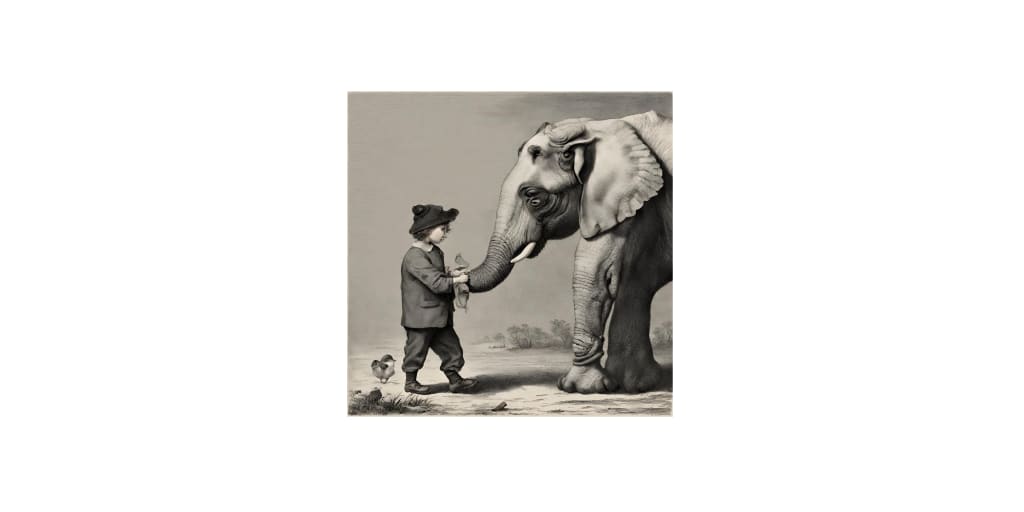It is a fact that certain animals possess greater intelligence than humans.
Animal and Humans

It is difficult to imagine what animals might become the new top species if humans go extinct. When we think about it, we are fairly fond of our high intelligence, fashion sense, ability to cook, and use smartphones. However, if humans suddenly disappeared, other animals could evolve to take up our skills and build complex societies like we have. We can only speculate as to what these creatures might be.
With modern gene sequencing and understanding of evolution, scientists know many species will need to adapt to survive as the planet's climate changes. Convergence, where unrelated organisms develop similar traits to succeed in a particular environment, will also play a role. For example, fish and dolphins have developed similar body shapes for life in water. Primates like chimpanzees and bonobos are close to having hands like ours to make tools in the wild.
Birds and octopuses are highly intelligent animals. Humans have been arrogant about animal intelligence, but new research has shown that animals are far more intelligent than previously thought. Researchers are using technology to study and track animals such as Southern right whales and dolphins. Parrots and insects are also highly intelligent. Each species excels in different areas of intelligence based on environmental pressures and adaptation. Even house cats can be surprisingly smart, with some capable of learning to play the piano.
Researchers in Africa are using rats to detect lung disease in saliva samples. These small animals have an incredible ability to discern different scents and can identify different samples in just seven minutes, which would take a human scientist a whole day. Additionally, pigs like Nelly have impressive problem-solving skills and can tackle a variety of tasks. It's amazing to see how their brains process spatial awareness and handle different challenges.
Imagine yourself scuba diving in the vast ocean, observing the mesmerizing beauty of coral reefs and vibrant fish gracefully swimming by. Suddenly, a colossal shadow looms above you, capturing your attention. As you gaze upwards, you witness the approach of an immense creature, its mouth resembling an unfathomable abyss. However, there is no need to panic. This magnificent being is a basking shark, one of the awe-inspiring sea creatures that pose no threat to humans. Similar to baleen whales, basking sharks are filter feeders, utilizing their expansive mouths to consume plankton without the presence of teeth. Now, let us transport ourselves to the depths of the Central American jungle during the late hours of the night. You find yourself immersed in the wilderness, eagerly anticipating the sight of various bird species. Suddenly, the sound of wings flapping fills the air, igniting a surge of excitement within you. Peering intently through your night vision goggles, you are met with a face that could easily be mistaken for a creature from your worst nightmares. However, it is crucial to remain composed and refrain from screaming, as this harmless creature is a wrinkle-faced bat, uninterested in your presence. These bats, known as fruit bats, possess facial wrinkles that aid in the collection of fruit pieces and juice for later consumption. Interestingly, their Latin name, Centuro Senex, was bestowed upon them due to their resemblance to humans who have reached the remarkable age of one hundred.
While digging your garden in the backyard, you happen to notice movement on your shovel. Intrigued, you take a closer look and, to your horror, drop the tool as you spot a small creature resembling a hostile alien scurrying away into a burrow in the ground. However, there is no need to worry, as it is simply a star-nosed mole. These critters possess peculiar snouts that appear as if they have been inflated from within. Due to their small and weak eyes, the star on their nose aids them in navigating and foraging for food. They are constantly on the move, using their tendrils like tiny fingers to explore their surroundings. Now, imagine you are bathing in the ocean and suddenly notice a toothy creature approaching you from the right. Before panic sets in, rest assured that it is merely a sand tiger shark. Contrary to its name, it is neither a shark that dwells in sand nor a tiger. This vulnerable fish-eating shark leisurely swims in the seas and occasionally hunts its prey. There have been no recorded incidents of it attacking humans. However, it possesses rows of sharp teeth, so it is advisable not to attempt to touch it, just in case. While it may appear calm, you certainly wouldn't want to experience a bite from it, would you? Now, let's shift our focus from the ocean to the desert. Picture yourself in Australia, yearning for some water. You stumble upon a promising spot and begin digging, only to come across a creature that seems to have emerged from the depths of the unknown. Covered in thorns, it eyes you suspiciously before slinking away. Fear not, for it is simply a thorny devil. Despite its foreboding name, this lizard poses no harm to humans. The horn-like bumps on its skin serve as a defense mechanism against predators and birds of prey. As long as you refrain from touching the thorns, you will be perfectly safe. Now, for those with arachnophobia, the following may not provide much solace. However, it is worth noting that tailless whip scorpions, which can be found in North and South America, as well as Asia and Africa, are more afraid of humans than we are of them. These nightmarish creatures lack stingers and will not bite unless provoked. The worst they can do, and only if cornered, is prick you with their front legs, leaving tiny puncture marks on your finger. In fact, many people even keep them.
About the Creator
Fawad khan
Blogger





Comments (1)
Animals are very smart! Good work! Gazoogabloga